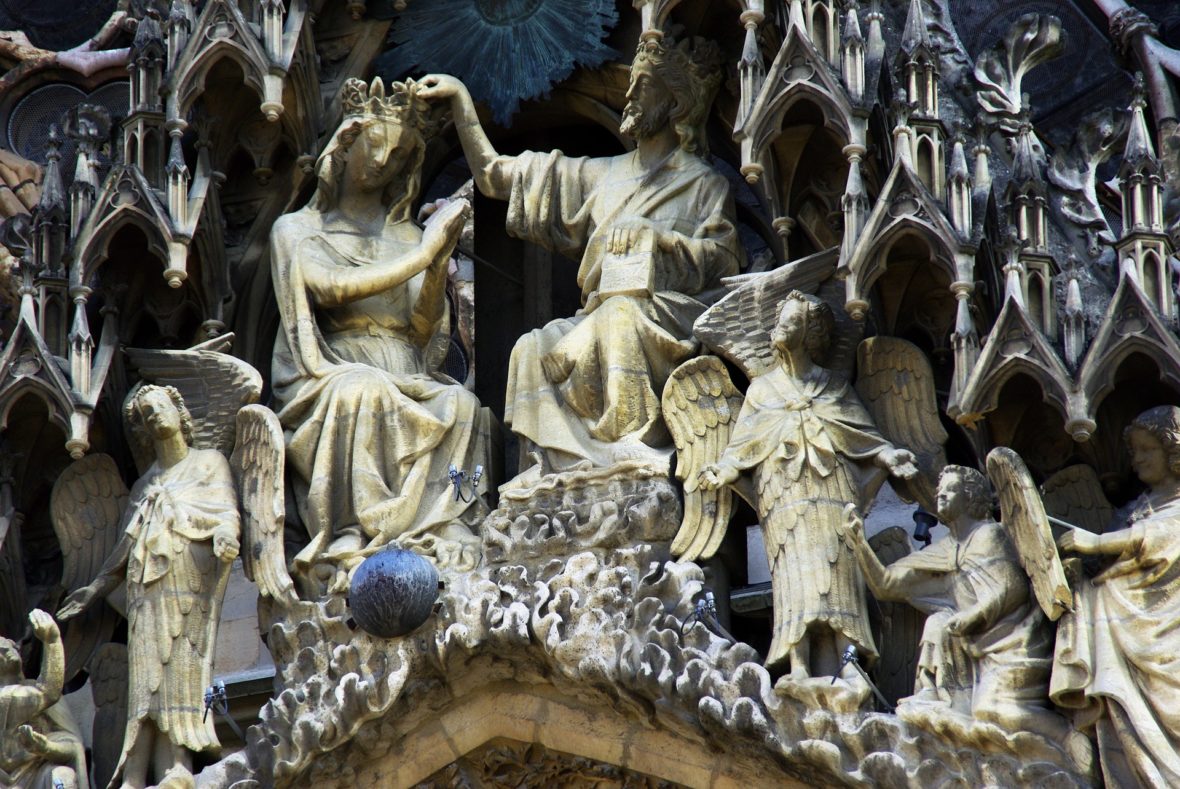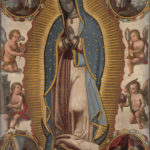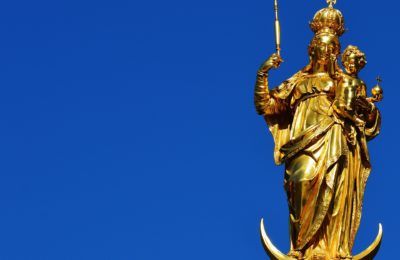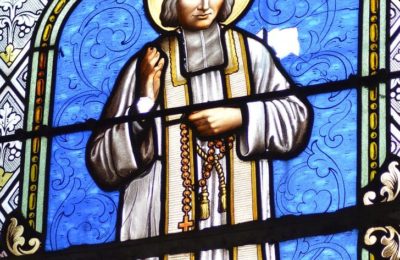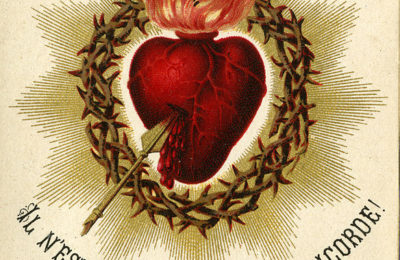35. But the Blessed Virgin Mary should be called Queen, not only because of her Divine Motherhood, but also because God has willed her to have an exceptional role in the work of our eternal salvation. ‘What more joyful, what sweeter thought can we have’ – as Our Predecessor of happy memory, Pius XI wrote – ‘than that Christ is our King not only by natural right, but also by an acquired right: that which He won by the redemption? Would that all men, now forgetful of how much we cost Our Savior, might recall to mind the words, ‘You were redeemed, not with gold or silver which perishes, . . . but with the precious blood of Christ, as of a Lamb spotless and undefiled.[43] We belong not to ourselves now, since Christ has bought us ‘at a great price’.'[44], [45]
36. Now, in the accomplishing of this work of redemption, the Blessed Virgin Mary was most closely associated with Christ; and so it is fitting to sing in the sacred liturgy: ‘Near the cross of Our Lord Jesus Christ there stood, sorrowful, the Blessed Mary, Queen of Heaven and Queen of the World.'[46] Hence, as the devout disciple of St. Anselm (Eadmer, ed.) wrote in the Middle Ages: ‘just as . . . God, by making all through His power, is Father and Lord of all, so the blessed Mary, by repairing all through her merits, is Mother and Queen of all; for God is the Lord of all things, because by His command He establishes each of them in its own nature, and Mary is the Queen of all things, because she restores each to its original dignity through the grace which she merited.'[47]
37. For ‘just as Christ, because He redeemed us, is our Lord and king by a special title, so the Blessed Virgin also (is our queen), on account of the unique manner in which she assisted in our redemption, by giving of her own substance, by freely offering Him for us, by her singular desire and petition for, and active interest in, our salvation.'[48]
38. From these considerations, the proof develops on these lines: if Mary, in taking an active part in the work of salvation, was, by God’s design, associated with Jesus Christ, the source of salvation itself, in a manner comparable to that in which Eve was associated with Adam, the source of death, so that it may be stated that the work of our salvation was accomplished by a kind of ‘recapitulation,'[49] in which a virgin was instrumental in the salvation of the human race, just as a virgin had been closely associated with its death; if, moreover, it can likewise be stated that this glorious Lady had been chosen Mother of Christ ‘in order that she might become a partner in the redemption of the human race’;[50] and if, in truth, ‘it was she who, free of the stain of actual and original sin, and ever most closely bound to her Son, on Golgotha offered that Son to the Eternal Father together with the complete sacrifice of her maternal rights and maternal love, like a new Eve, for all the sons of Adam, stained as they were by his lamentable fall,'[51] then it may be legitimately concluded that as Christ, the new Adam, must be called a King not merely because He is Son of God, but also because He is our Redeemer, so, analogously, the Most Blessed Virgin is queen not only because she is Mother of God, but also because, as the new Eve, she was associated with the new Adam.
39. Certainly, in the full and strict meaning of the term, only Jesus Christ, the God-Man, is King; but Mary, too, as Mother of the divine Christ, as His associate in the redemption, in his struggle with His enemies and His final victory over them, has a share, though in a limited and analogous way, in His royal dignity. For from her union with Christ she attains a radiant eminence transcending that of any other creature; from her union with Christ she receives the royal right to dispose of the treasures of the Divine Redeemer’s Kingdom; from her union with Christ finally is derived the inexhaustible efficacy of her maternal intercession before the Son and His Father.
40. Hence it cannot be doubted that Mary most Holy is far above all other creatures in dignity, and after her Son possesses primacy over all. ‘You have surpassed every creature,’ sings St. Sophronius. ‘What can be more sublime than your joy, O Virgin Mother? What more noble than this grace, which you alone have received from God’?[52] To this St. Germanus adds: ‘Your honor and dignity surpass the whole of creation; your greatness places you above the angels.'[53] And St. John Damascene goes so far as to say: ‘Limitless is the difference between God’s servants and His Mother.'[54]
41. In order to understand better this sublime dignity of the Mother of God over all creatures let us recall that the holy Mother of God was, at the very moment of her Immaculate Conception, so filled with grace as to surpass the grace of all the Saints. Wherefore, as Our Predecessor of happy memory, Pius IX wrote, God ‘showered her with heavenly gifts and graces from the treasury of His divinity so far beyond what He gave to all the angels and saints that she was ever free from the least stain of sin; she is so beautiful and perfect, and possesses such fullness of innocence and holiness, that under God a greater could not be dreamed, and only God can comprehend the marvel.'[55]
42. Besides, the Blessed Virgin possessed, after Christ, not only the highest degree of excellence and perfection, but also a share in that influence by which He, her Son and our Redeemer, is rightly said to reign over the minds and wills of men. For if through His Humanity the divine Word performs miracles and gives graces, if He uses His Sacraments and Saints as instruments for the salvation of men, why should He not make use of the role and work of His most holy Mother in imparting to us the fruits of redemption? ‘With a heart that is truly a mother’s,’ to quote again Our Predecessor of immortal memory, Pius IX, ‘does she approach the problem of our salvation, and is solicitous for the whole human race; made Queen of heaven and earth by the Lord, exalted above all choirs of angels and saints, and standing at the right hand of her only [55a] Son, Jesus Christ our Lord, she intercedes powerfully for us with a mother’s prayers, obtains what she seeks, and cannot be refused.'[56] On this point another of Our Predecessors of happy memory, Leo XIII, has said that an ‘almost immeasurable’ power has been given Mary in the distribution of graces;[57] St. Pius X adds that she fills this office ‘as by the right of a mother.'[58]
43. Let all Christians, therefore, glory in being subjects of the Virgin Mother of God, who, while wielding royal power, is on fire with a mother’s love.
Excerpt from:
AD CAELI REGINAM
ENCYCLICAL OF POPE PIUS XII
ON PROCLAIMING THE QUEENSHIP OF MARY, October 11, 1954

